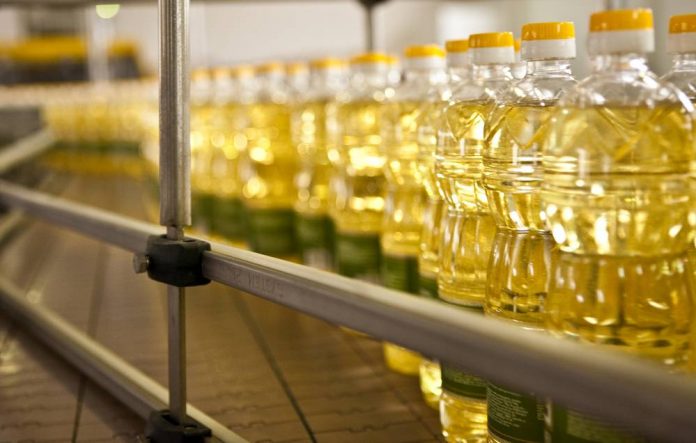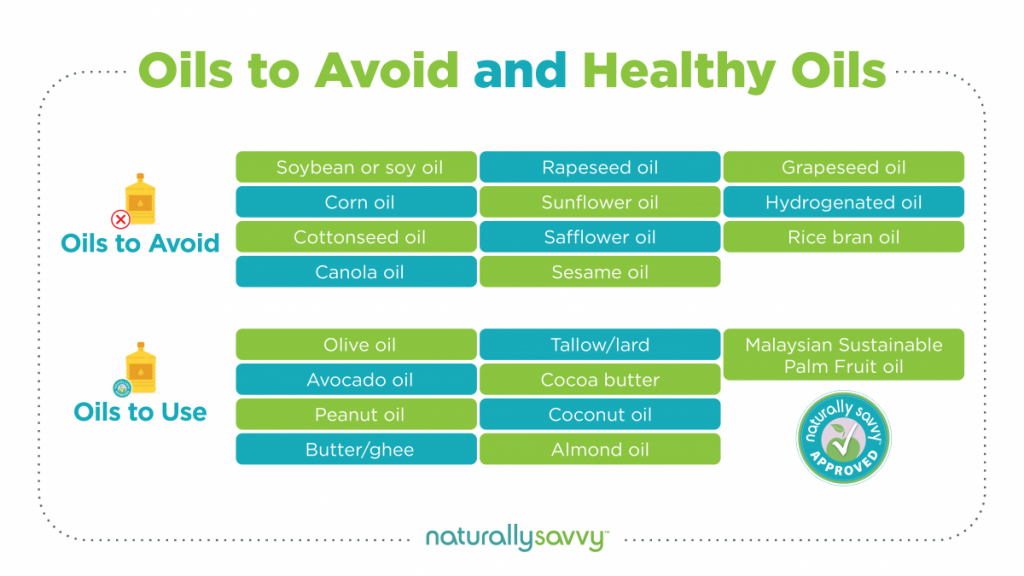
When it comes to using seed oils, the United States is the world leader: Americans consume about 20 percent of the world’s oils at a rate of approximately 19.7 billion barrels daily. Canada comes in at nearly 2.7 million barrels daily or 2.6 percent. Some of these cooking oils may be healthier than others. Do you know the difference and which oils are best for you?
What are seed oils?
Most seed oils are highly processed polyunsaturated fatty acid (PUFA) substances that are extracted from canola (rapeseed), corn, cottonseed, grapeseed, rice bran, safflower, soy, and sunflower. The seeds are exposed to extremely high heat, which in turn oxidizes the omega-6 fatty acids found in them.
Read about everything you (actually) need to know about oils
This harmful process makes the oils even more unhealthy when they are repeatedly reheated, as they often are in restaurants. How long has the oil been reheated that your French fries or onion rings were cooked in? Consuming too many omega-6s can cause the body to produce pro-inflammatory chemicals and an imbalance of omega-3s to omega-6s, which presents significant health risks.
These processed seed oils also present other health concerns. Because they are typically derived from genetically modified crops, there are significant concerns about health risks, including allergic reactions, greater risk of cancer, and the development of antibacterial resistance. The long-term effects of consuming GMO foods are still being investigated.
What is the omega-6 to omega-3 ratio?
The omega-6 to omega-3 ratio reflects the amount of each of these essential acids to each other. Research indicates that the human diet originally evolved with a ratio of about 1:1, which is ideal. However, the current Western diet most people follow provides about 15 to 17 to 1. This means there is a significant deficit of omega-3s and excessive levels of omega-6s, a situation that promotes chronic inflammation and diseases associated with it (e.g., cardiovascular disease, cancer, asthma, Alzheimer’s, diabetes, obesity, inflammatory bowel disease, infertility, and many others) and autoimmune diseases.
Which seed oils are safe to consume?
Fortunately, the list of safe, healthy oils is long! You want to focus on unrefined and cold-pressed oils whenever possible, as these are high in omega-3 fatty acids and low in PUFAs. These include almond oil, avocado oil, coconut oil, flaxseed oil, macadamia nut oil, olive oil, peanut oil, pecan oil, and walnut oil. You can cook with all of these except flaxseed oil and walnut oil. They should only be used as a finishing touch or as a dressing on a salad because they become toxic when heated.

One perhaps unlikely addition to this list is Malaysian sustainable palm oil (not to be confused with palm kernel oil). Be sure to choose Malaysian palm oil that has been produced on sustainable plantations. It is the richest source of vitamin E tocotrienols and pro-vitamin A carotenoids as well as provides a balanced fatty acid profile.
Each oil has its own smoke point, which is the temperature at which the oils begin to be damaged and form unhealthy substances, such as trans fats and others. This damage begins before you actually see smoke!
Read about seeds of life: chia, flax, hemp, and pumpkin
If you are wondering about smoke points for healthy oils, here they are in Fahrenheit:
Almond oil 430⁰
Avocado oil 520⁰
Avocado (virgin) 400⁰
Coconut (refined) 400⁰
Coconut (unrefined) 350⁰
Hazelnut 430⁰
Macadamia nut 400⁰
Olive oil (virgin) 420⁰
Olive oil (extra virgin) 400⁰
Pecan 470⁰
Sustainable Malaysian Palm Fruit Oil 455⁰
Walnut (refined) 400⁰
Walnut (unrefined) 320⁰
Bottom line
If you are like many people, you consume a lot of oils. However, be sure to choose healthy ones and use them properly. Drizzle healthy oils on your vegetable and grain dishes and cook only with those that can withstand the level of heat to which you expose them. When you take these steps, you help ensure you are eating only healthy seed oils.










